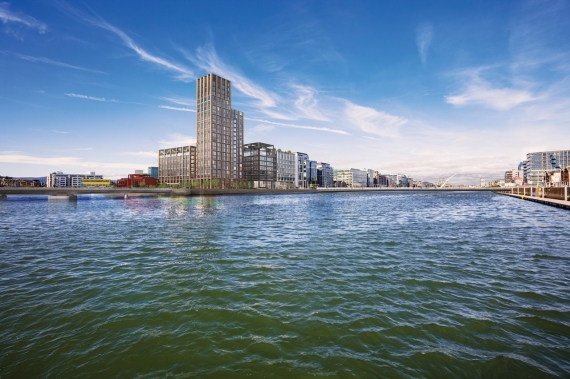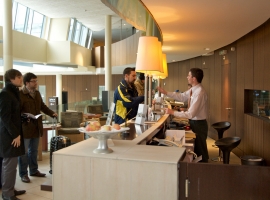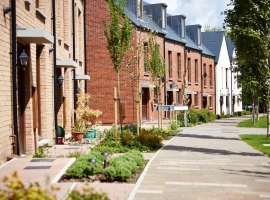
Dublin office market take-up reached 844,000 sq ft in the final quarter of the year, which brought total take-up for the year to 2.6m sq ft, according to a new report from property advisor, Savills Ireland.
The city centre was the focus of both take-up and construction activity, correlating with observed preference rates amongst new requirements post covid.
All of the top ten deals took place in either Dublin 1 or Dublin 2 which boosted the Central Business District's (CBD) share of take-up from 69% to 79% over the past year. This was significantly above the ten-year average of 62%.
Construction activity followed suit, with 80% of new space delivered in the CBD. Delivery of 2.8m sq ft was achieved in the year with an average delivery size of 130,000 sq ft due to ten properties measuring over 100,000 sq ft.
The largest was the 430,000 sq ft Spencer Place, also known as the Salesforce headquarters in Dublin 1. This was followed by Meta’s Fibonacci Square and Google’s Bolands Quay, both in Dublin 4.
The largest deal of the year was Citi Group’s acquisition of Waterfront South Central in the final quarter. The 300,000 sq ft deal represents an expansion and upgrade from the current European headquarters at 1 North Wall Quay.
Another pre-let for 155,000 sq ft at 25 North Wall Quay, by professional services firm A&L Goodbody was the second-largest deal and took place in the third quarter.
The third-largest was SMBC’s signing of Fitzwilliam 28. The aviation firm was represented by Savills in the negotiations for the 135,000 sq ft sublease space.
Tech firms made up the remaining two of the top five deals. The substantial Citi deal led to financial services knocking tech off the top spot for the largest share of take-up at 29%, compared to 26% for tech.
Commenting on the figures, Head of Office Agency, Andrew Cunningham said, "Tech has been a large driver of the Dublin office market over the last decade and, while this is a tricky period, the cyclical nature of the sector will ensure a strong recovery as the wider market recovers. It is more likely that traditional occupiers will temporarily come to the fore in 2023, particularly State firms who are to lead the way in the 50% carbon reduction goal by 2030."
He added, "As with many other countries, progress on the housing crisis would also provide timely assistance to curbing wage growth and maintaining Ireland’s competitiveness on all fronts, in readiness for the recovery in the tech sector to come."
Source: www.businessworld.ie

















